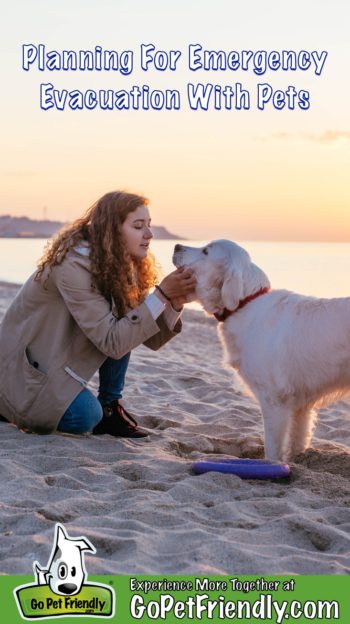Preparing for an emergency evacuation takes extra planning when your family includes pets. Taking the time now ensures that you and your furry loved ones will have what you’ll need if you’re uprooted.
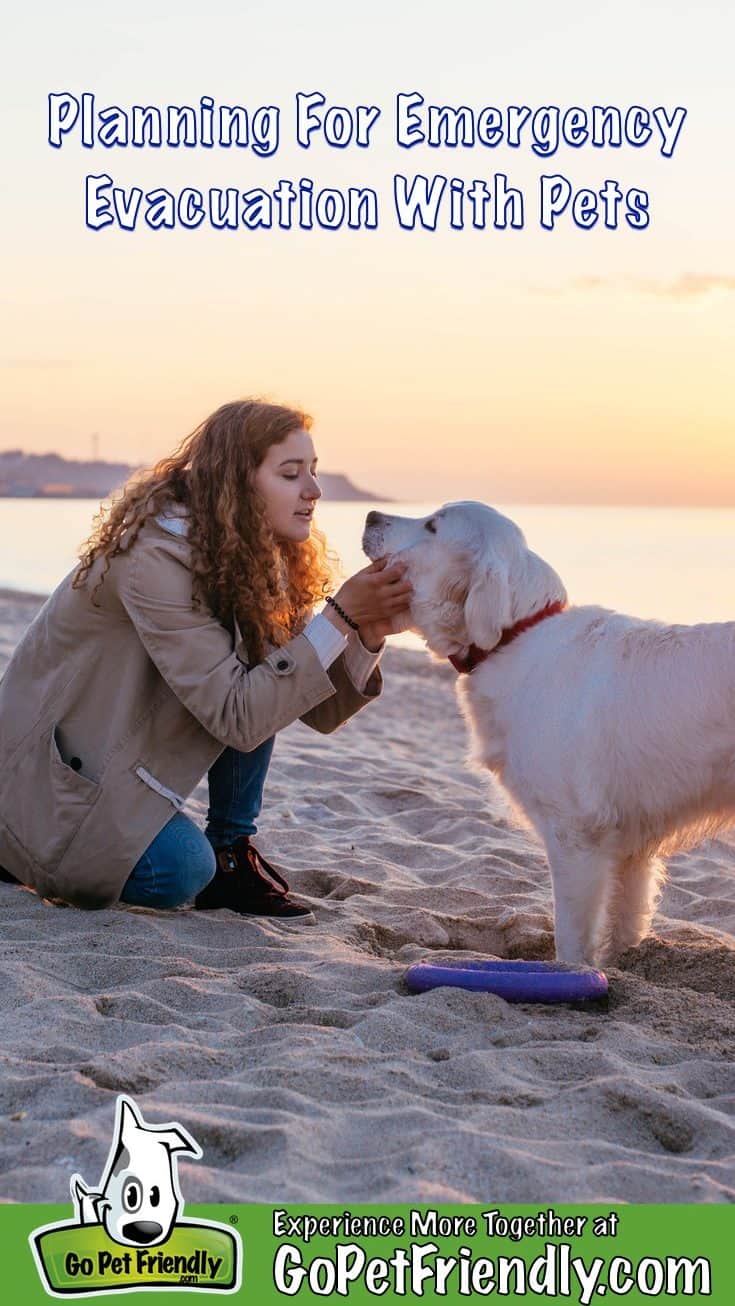
Evacuations occur for all kinds of reasons. Hurricanes, floods, wildfires, train derailments, and industrial accidents could cause you to have to leave your home with little notice. Being prepared in advance is vital. And having an emergency evacuation plan is even more important when you have pets. Follow these steps to put your plan in place today!
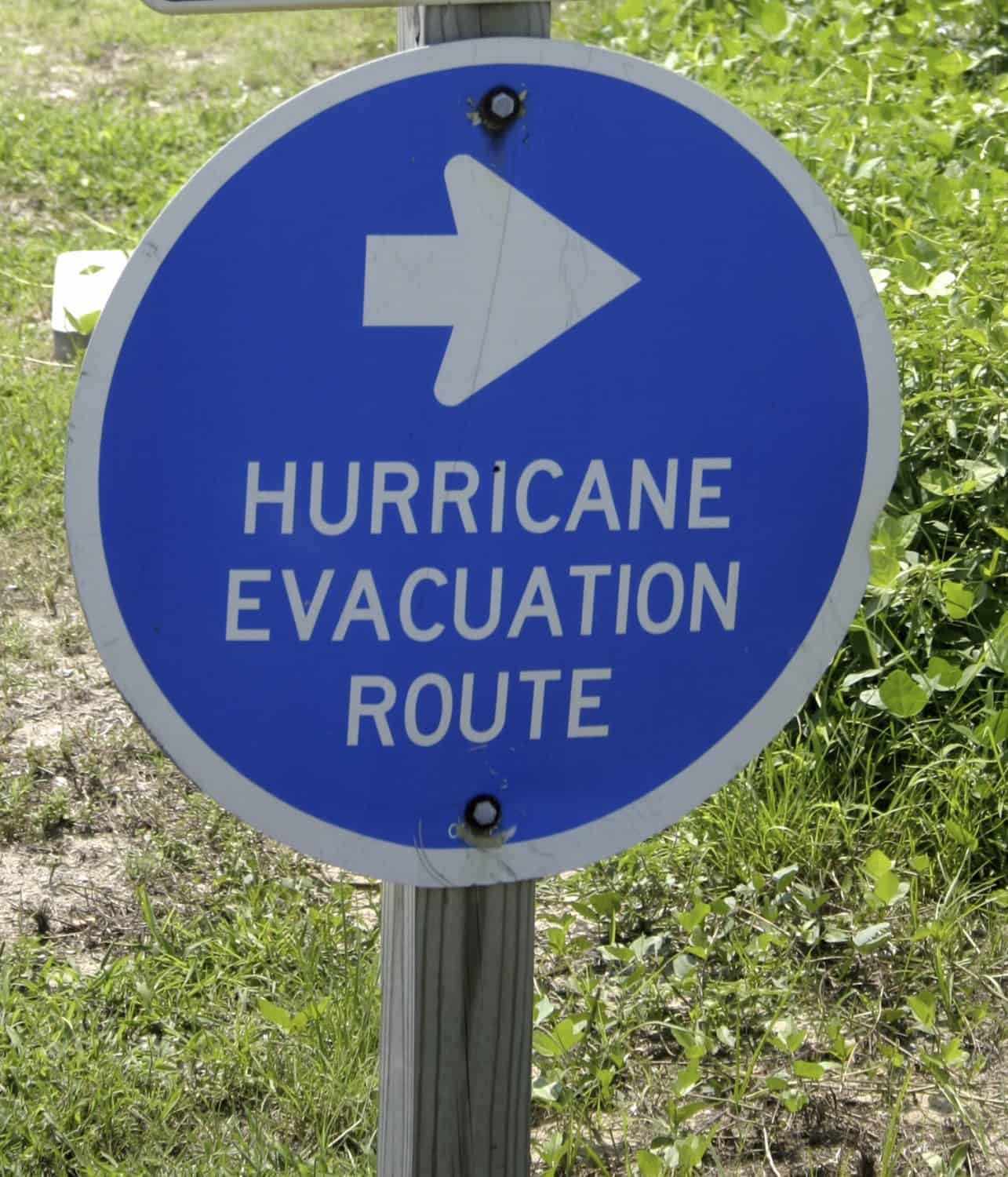
Making An Emergency Evacuation Plan That Includes Your Pet’s Needs
Pre-Pack Your Pet’s Go-Bag
In an emergency evacuation, there could be very little time for you to pack for yourself and your pets! Many people keep a “go-bag” packed for the humans in the family. To avoid forgetting the essentials your pet will need, it’s important to also pre-packing his emergency kit. Here are the things you’ll need:
- Food and water for a week. Pack your pet’s food in a waterproof, resealable container. Then set a calendar reminder to swap out the food every three months so it’s always fresh. Include lightweight food and water bowls, and don’t forget a can opener if your pet eats canned food.
- Medication for a week. Medication should also be packed in a waterproof, resealable container and rotated every three months. If your pet’s medication requires refrigeration, pack a small cooler with a note reminding you to grab the medication from the refrigerator and some ice packs from the freezer.
- Proof of vaccination and ownership. Emergency shelters might not accept tags as proof of vaccination, so pack a copy of your pet’s most recent vaccination certificate. If you and your pet should become separated, you’ll also need a photo to make posters. And when your pet is found, you might need proof of ownership (like a microchip number) to claim him or her. Keep all three in a sealed, waterproof bag.
- A first aid kit.
READ MORE ⇒ Make A Pet First Aid Kit For Your Car
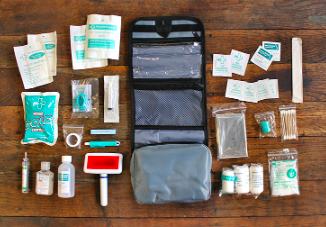
- An extra collar with ID tag and a leash. Your pet probably has an ID tag, but if cell service is down or you’re not at your home phone number, it might not have the best contact information for you. Stick a blank label on the back of an ID tag and put it in your emergency kit along with a permanent pen. That way you’ll be able to write your temporary information on it and attach it to your pet’s collar.
- A muzzle. Some emergency shelters only allow muzzled dogs. Your dog will be more comfortable if he’s been acclimated to wear a muzzle in advance. Pack a soft muzzle you can easily slip on your pup if needed. And refresh his training every three months when you switch out his food and medication.
- A familiar toy, blanket, or bed. Being evacuated is stressful for everyone. Having a few comforts from home will help relieve any anxiety your pet might be feeling.
- A kennel or carrier. If you’re planning to take your pet with you to an emergency shelter or hotel, be sure to have a carrier or kennel along. Some emergency shelters require pets to contained, and hotels might also require a carrier or kennel if you need to leave your pet unattended in the room.
- Waste bags and/or a litter box with litter.
READ MORE ⇒ Tips For Traveling Alone With Pets
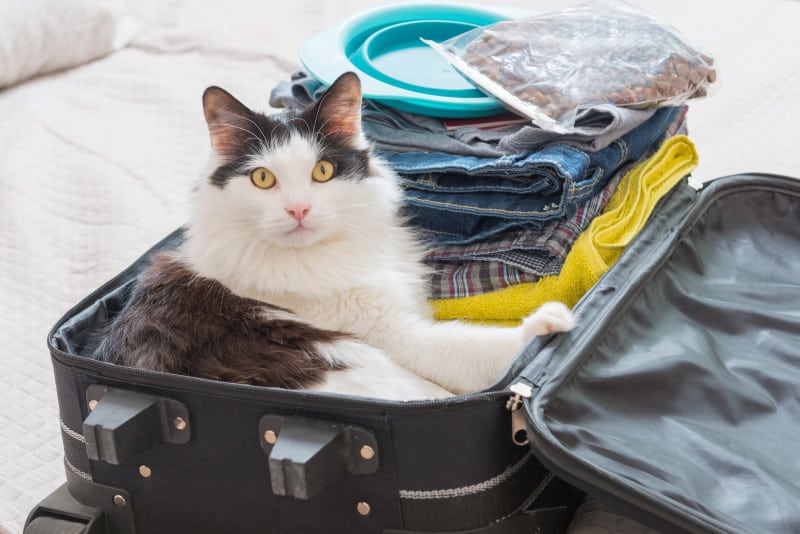
Locate A Pet Friendly Place To Go
The second step in preparing for an emergency evacuation with pets is figuring out where you’ll go. Not all emergency shelters allow pets, and those that do may have strict guidelines. Familiarize yourself with your community’s evacuation facilities and policies so you’ll know your options.
If your local shelter doesn’t accept pets, follow the additional steps below to plan your family’s safe evacuation.
Plan For Multiple Evacuation Routes
The path of dangerous weather and possible road closures might impact your planned escape route, so map out two or three potential destinations. Then locate pet friendly accommodations in each city.
Choose Your Accommodations
If you’re planning to stay with family or friends, call to ask whether they’ll also welcome your pet. Then refresh your memory on how to be a considerate guest when traveling with pets.
If you’re planning to stay at a hotel or campground, use a website like GoPetFriendly to find the best options. Don’t forget to ask about breed and weight restrictions and any additional pet fees. When you make your selections, print out the name, address, phone number, and driving directions to each location and keep them in your emergency kit.
READ MORE ⇒ Pet Policies For All U.S. Hotel Chains

It takes time to prepare for an emergency evacuation with pets. But it’s an investment that will save you a lot of stress and heartache if the need arises. And making a plan that considers your needs as well as your pets will keep everyone safe!
(Visited 2,184 times, 1 visits today)



